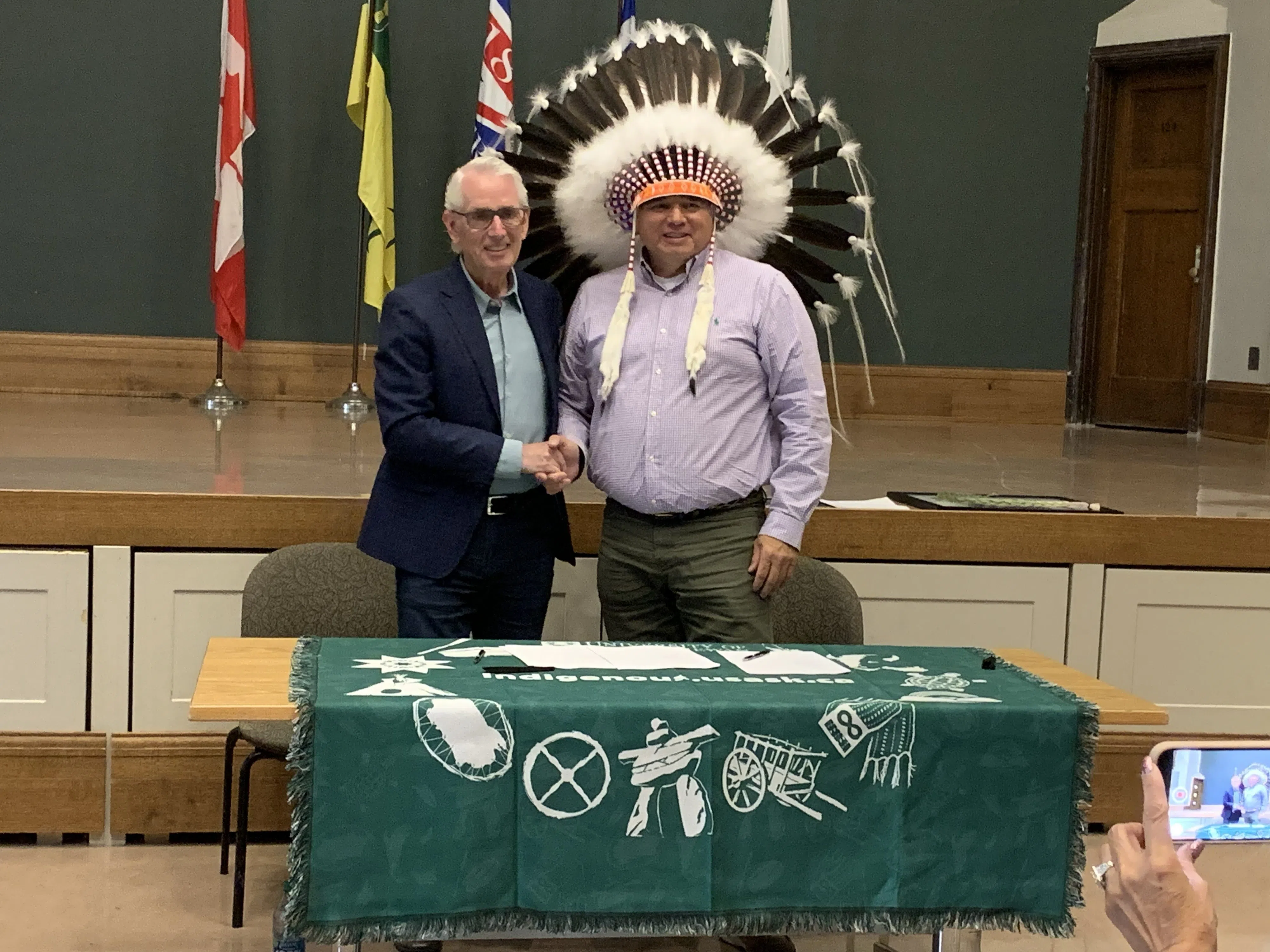One more step towards reconciliation was taken Tuesday, as the leadership of Thunderchild First Nation and the University of Saskatchewan have signed a Memorandum of Understanding, or a mutual agreement to work towards a common goal.
The University has signed several MOUs with different Indigenous organizations and governments, such as the Federation of Sovereign Indigenous Nations, Metis Nation-Saskatchewan, the Prince Albert Grand Council, and the Saskatoon Tribal Council, each seeking support in a unique endeavour. Thunderchild First Nation reached out to the University in search of agricultural support, as its people have recently taken on the task of farming over 10,000 acres of land near the First Nation.
Chief of Thunderchild First Nation Delbert Wapass says prior to 2016, the First Nation rented farmland to local farmers at a very low price. However, that year, Thunderchild First Nation, led by Chief Wapass, seized the opportunity to grow their own crops and make an income from their land.
“It was through a lot of trials and tribulations. At times, very expensive prices we had to pay. One time, we accidentally used Roundup and killed a whole field. Or, we had a person that fell asleep using the GPS inside a combine, and (they) hit a pole,” Wapass recounts.
Wapass admits his community often struggles with drugs, alcohol, crime, gangs, poor housing, as well as high unemployment and welfare rates. He looked to the University as a way to assist the First Nation out of its dire situation. From the MOU, Wapass hopes to gain agricultural knowledge, resources, and develop educational programs for those who are unable to leave the reserve to pursue an education at the University.
“This is how we’re going to do it. It’s going to lead to better opportunities. More opportunities, which then hopefully equal training, jobs, people getting involved, people being motivated.”
Wapass relates this agricultural opportunity the ‘TSN Turning Point’ of their lives.
He adds that not only does the First Nation benefit from this partnership, but there are things for the University to learn, as well.
“We don’t just farm. There is a whole process and ceremony that goes into doing what we do before we do it.”
He attributes his community’s spirituality to the success they’ve seen in the field. “People talk about drought, but we’ve been fortunate. A lot of that is tied to our spirituality, our belief in Mother Earth, and how we look after it.”
USask President Peter Stoicheff says the University has a profound strength in precision agriculture and looks forward to determining what it can do to help Thunderchild. He adds that USask has experience with assisting farmers, and they’ve been doing it for a long time.
“Way back 100 years ago when the province and the University first began, the mission really of the College of Agriculture, at the time, was to go out to farmers around the province and help them with new farming techniques.”
Stoicheff says although the institution doesn’t have endless resources, partnerships like this are a means of furthering and supporting reconciliation in Canada.





















